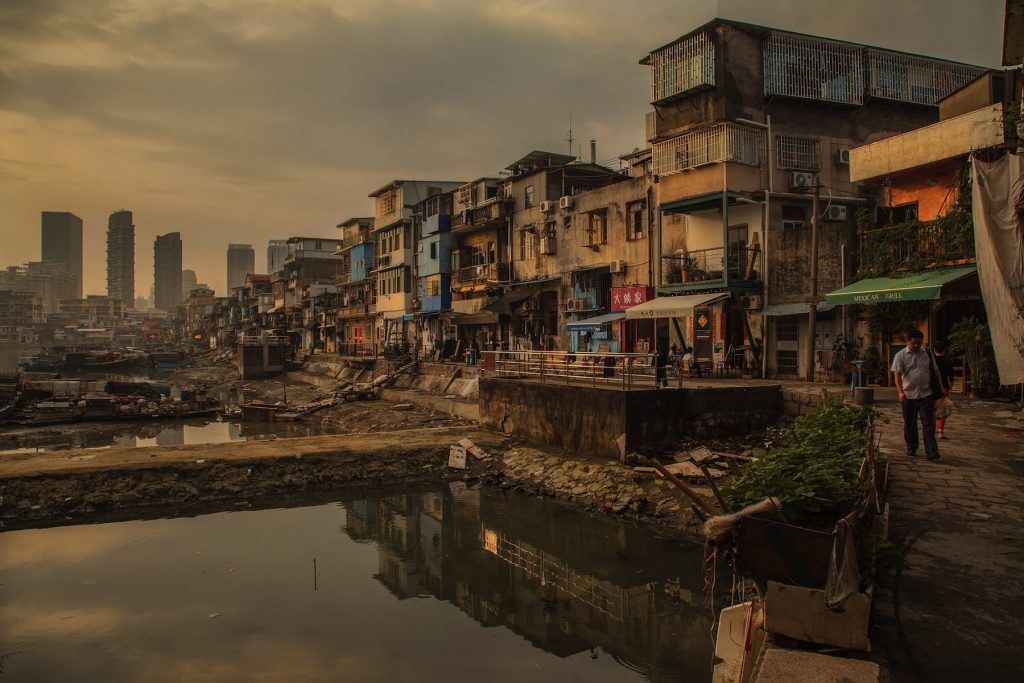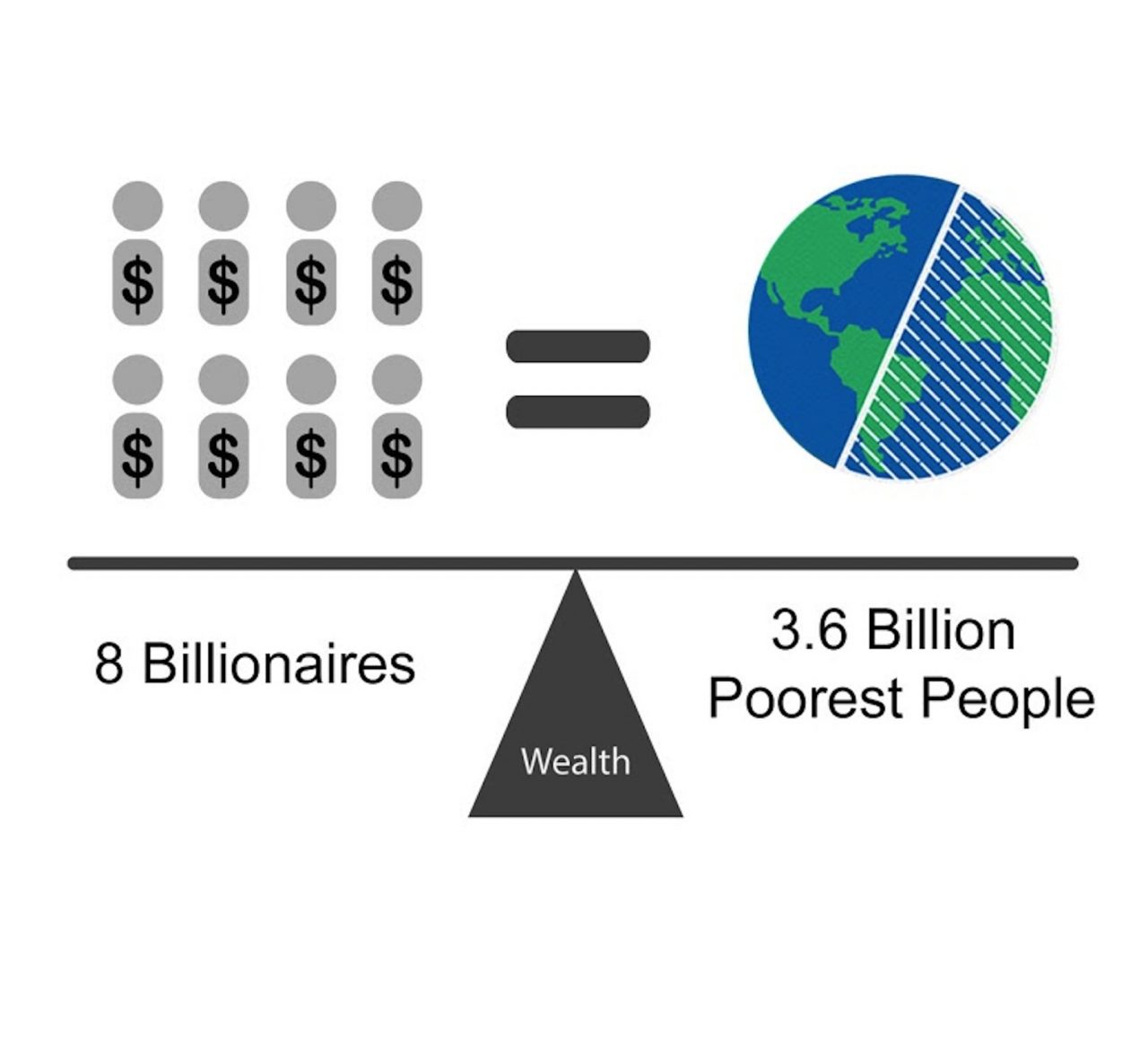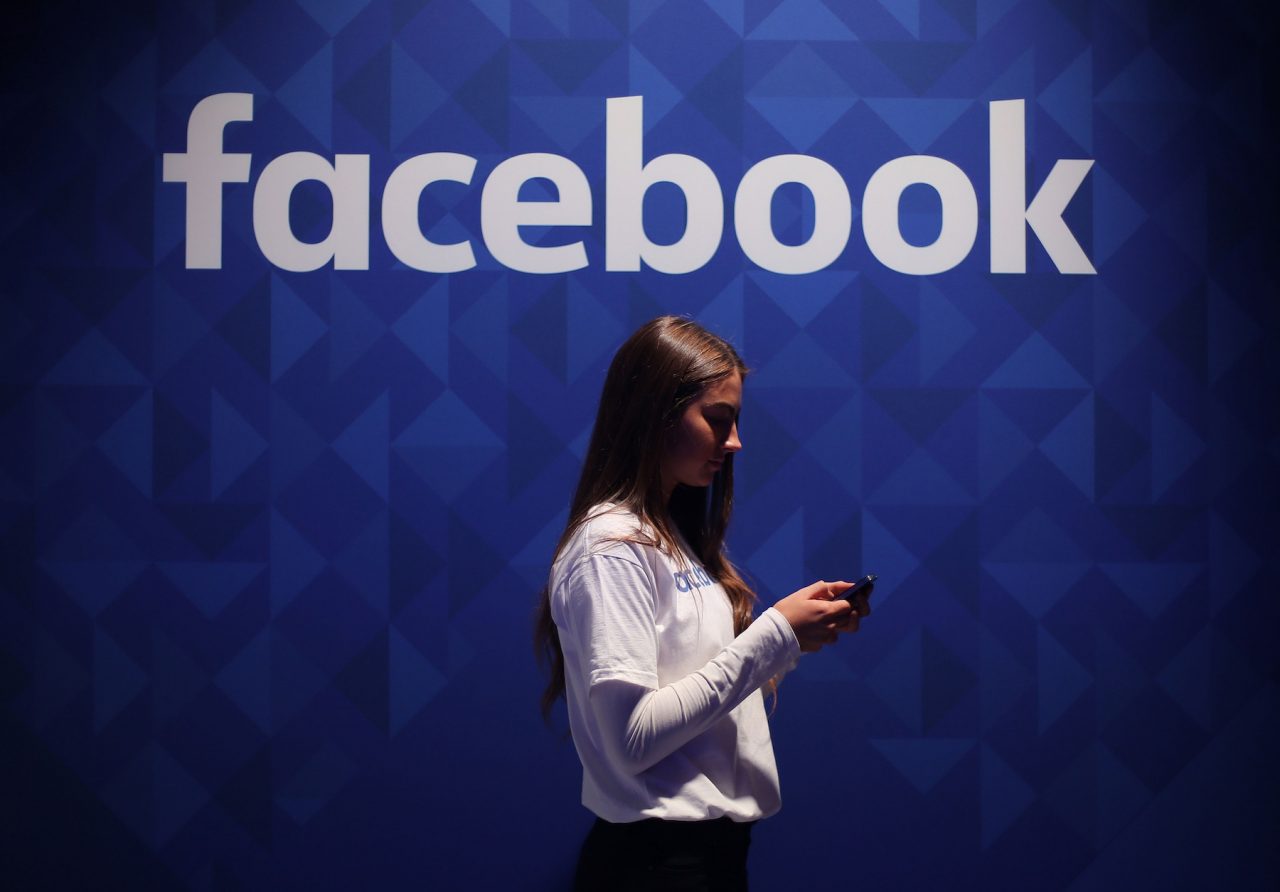
Everyone’s talking about inequality. Is it really so bad?
Oxfam has published its annual report on inequality, with some pretty mind-blowing figures.
According to Oxfam, eight people are as rich as the poorest 3.6 billion people, which is 50% of the world’s population. So what is inequality? What fuels it? And why is it so important?
What's the story?
Last year, Oxfam’s report said 62 billionaires had the same wealth as the bottom 50%. That's a big difference from this year's 8. The number has changed so dramatically because the data available on the world’s population has improved, and this better data shows that the world’s population - particularly in countries such as India and China - is much poorer than people thought.
The inequality question
Sounds bad right? But how bad is it? Some of Oxfam’s biggest critics, including think tanks like the Adam Smith Institute or the Institute of Economic Affairs think that Oxfam is focusing too much on the difference between rich and poor – the issue of inequality – rather than focusing on the economic growth that they think will bring people out of poverty.
The IEA had this to say: “As an ‘anti-poverty’ charity, Oxfam seems to be strangely preoccupied with the rich. For those concerned with eradicating absolute poverty completely, the focus should be on ensuring the right institutional frameworks are in place to encourage economic growth, instead of obsessing over the wealthy.”
There are also big question marks raised over Oxfam's use of numbers. The figures it uses take into account any debt people have when calculating their wealth, or their "net worth". Is it fair, ask the reports critics, to put the poorest people in the world in the same category as a graduate with high debt, without taking into account any future earning potential? The IEA argues that Oxfam's use of net wealth is simply a tactic for making their numbers more attention grabbing. Or in it's own words, "largely meaningless headline fodder".
Ouch! So what is wrong with inequality? Oxfam argues in its report that the concentration of wealth in just a few people, or places actually holds back the fight against poverty. But, more than that, it says, it is contributing to social problems and affecting politics.
In fact, a hugely successful 2009 book, The Spirit Level, argued that health and social problems, including mental health, drug abuse and teenage pregnancies, are more noticeable in countries with higher levels of inequality.
And, its also important to think about the conditions that allowed such a big gap to emerge. Is it just a case of some people being more successful than others?

So who are these people?
Oxfam compared data on the world’s wealth from a Swiss financial services company, called Credit Suisse, to data from Forbes, which publishes lists of billionaires by wealth. All eight are successful businessmen, almost all are American, and all are men.

Bill Gates (US): co-founder of Microsoft (net worth $75bn)
Amancio Ortega (Spain): founder of Zara owner Inditex (net worth $67bn)
Warren Buffett (US): largest shareholder in Berkshire Hathaway (net worth $60.8bn)
Carlos Slim Helu (Mexico): owner of Grupo Carso (net worth $50bn)
Jeff Bezos (US): founder and chief executive of Amazon (net worth $45.2bn)
Mark Zuckerberg (US): co-founder and chief executive of Facebook (net worth $44.6bn)
Larry Ellison (US): co-founder and chief executive of Oracle (net worth $43.6bn)
Michael Bloomberg (US): owner of Bloomberg LP (net worth $40bn)
How do you solve a problem like inequality?
So is Oxfam just punishing success? All of these men have done well, which we as a society should encourage, right? In fact, some of them are major charitable donors. Number one on that list, Bill Gates, recently received Obama's Medal of Honour, in no small part due to the work done through the Bill Gates Foundation.
The question Oxfam is asking however, is whether it is really a level playing field. Many businesses, Oxfam argue, have been given an unfair advantage - often through conditions which it feels make large scale tax avoidance possible. At least two of the businesses above have been questioned over their tax policies, for example. And there seems to have been a real political appetite over the past five years to call out businesses for not paying their fair share. Oxfam is calling for our economies to be “rebalanced”,
“We need a new common-sense approach that ensures a fair deal for workers and producers; requires those who can afford it to pay their fair share of tax; and ensures that women get a fair chance to realise their potential."
Well that sounds straightforward, doesn't it?



